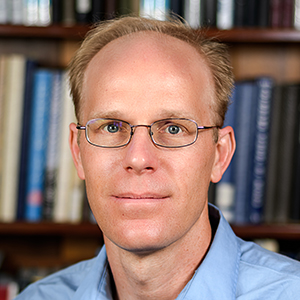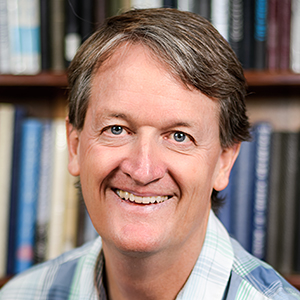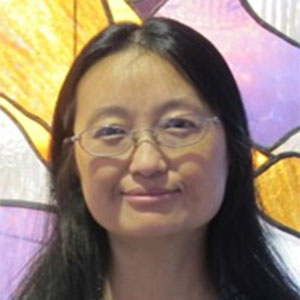
Tzahi Y. Cath
Director, Professor of Civil and Environmental Engineering
Ph.D., University of Nevada, Reno
Membrane processes for seawater and brackish water desalination and for wastewater reclamation and reuse; zero liquid discharge processes for enhancement of water recovery; optimization and energy recovery in water and wastewater treatment processes.

Christopher Higgins
Associate Professor, Civil and Environmental Engineering
Ph.D., Stanford University
Environmental organic chemistry; sediment bioaccumulation processes; emerging contaminants with a particular emphasis on perfluorochemicals and other charged organic contaminants; chemical fate and transport in natural and engineered aquatic systems; contaminant bioavailability.

Josh Sharp
Assistant Professor, Civil and Environmental Engineering
Ph.D., University of California at Berkeley
Biotechnological applications towards groundwater remediation and water reuse; bacterial cytochrome-mediated attenuation of organic micropollutants; bioimmobilization of radionuclides and metals; microbial biogeochemistry.

John Spear
Professor of Civil and Environmental Engineering
Ph.D., Colorado School of Mines
Environmental Microbiology, Metal Bioremediation, Environmental Policy and Impact Analysis.

John McCray
Professor of Civil and Environmental Engineering
Ph.D., University of Arizona
Contaminant hydrology, subsurface remediation, vadose-zone hydrology, subsurface vapor-transport, watershed hydrology, mathematical modeling, soil-based wastewater treatment.

Robert L. Siegrist
Professor Emeritus, Civil and Environmental Engineering
Ph.D., University of Wisconsin
Environmental characterization and risk assessment; subsurface manipulation and in situ treatment of contaminated land, water, and waste water treatment, and reuse in natural and alternative systems.

Jörg E. Drewes
Professor, Technical University of Munich
Dr.-Ing., Technical University of Berlin, Germany
Water and wastewater treatment engineering; potable and non-potable water reuse; state-of-the-art characterization of natural and effluent organic matter; contaminant transfer among environmental media; fate of endocrine disrupting compounds and pharmaceuticals in natural and engineered systems.

Pei Xu
Assistant Professor, New Mexico State University
PhD., L’École nationale du génie rural, des eaux et des forêts (ENGREF), France
Water and wastewater treatment engineering; potable and non-potable water reuse; membrane processes; desalination; concentrate management; produced water treatment and beneficial use; microbial desalination cell.
Christopher Bellona
Dr. Bellona graduated with a Ph.D. from the Colorado School of Mines in 2007 and worked as a Postdoctoral Research Associate with AQWATEC until December 2009. Dr. Bellona’s research interest focused on understanding the role that physical-chemical properties of membranes and solutes play in the rejection of organic micropollutants. This research was directed at qualitatively and quantitatively describing the mass transport of these compounds of concern in nanofiltration and reverse osmosis membranes. Dr. Bellona has been the lead researcher in projects funded by WateReuse Foundation, Water Research Foundation, and NSF/MAST. Dr. Bellona joined Clarkson University as an assistant professor in January 2012.
Adam Brady
Katharine Dahm
Katharine graduated with a Ph.D. from the Colorado School of Mines in 2011. She has a B.S. in Civil and Environmental Engineering from the New Mexico Institute of Mining and Technology. Her research interest was focused on the identification of organic matter present in produced water from coalbed methane gas mining operations and the technologies capable of treating produced water for beneficial use. Her faculty advisor was Professor Drewes.
Eric Dickenson
Dr. Eric Dickenson. Ph.D. University of Colorado-Boulder. Dr. Dickenson’s research focused on the fate and transport of persistent chemical compounds that are of health concern in drinking water, wastewater, and water reuse systems. He has served as lead researcher for several WateReuse Foundation, Water Environment Research Foundation, EPA, and Water Research Foundation projects on contaminant removal in indirect potable water reuse systems and disinfection by-product formations in drinking water treatment. He joined the center from 2006 until 2011. Dr. Dickenson is now the R&D Project Manager for the Southern Nevada Water Authority in Henderson, NV. Dr. Dickenson still has a Research Assistant Professor appointment at CSM.
Jochen Henkel
Jochen was a Postdoctoral Research Associate. Dr.-Ing., Technische Universitaet Darmstadt, Germany. Dr. Henkel’s research interest focused on oxygen transfer phenomena in activated sludge and the optimization of membrane bioreactor systems. Dr. Henkel was responsible from August 2010 to December 2011 for the decentralized SBR MBR full scale system at Mines Park, which was part of ReNUWIt’s tailored water efforts. Dr. Henkel is now with Dow Water and Process Solutions, Rheinmünster, Germany.
Anna Hoessle
Anna graduated with a Master’s in Environmental Science and Engineering from the Colorado School of Mines in December of 2008. She worked as a scientific associate for AQWATEC under the direction of Dr. Eric Dickenson. Her projects included performing and developing gas chromatography (GC) methods for analysis of environmental samples to detect trace amounts of disinfection byproducts (DBPs); trihalomethanes (THMs) and haloacetic acids (HAs). Additionally, Anna assisted John Stevens-Garmon with activated sludge biosorption and biodegradation experiments in order to assess effectiveness of various removal mechanisms of trace organic compounds.
Christiane Hoppe-Jones
Dr. Hoppe-Jones graduated with a Ph.D. from the Colorado School of Mines in 2012. M.S. Food Chemistry Technical University of Berlin. Her research interest was to investigate the fate and transport of emerging organic micropollutants during riverbank filtration (RBF) and artifical recharge and recovery (ARR). She was employing state-of-the-art analytical methods using GC/MS for quantification of target compounds and employing soil-column studies to identify removal mechanisms in a controlled environment. The research was verified through monitoring efforts at a local RBF demonstration site and full-scale RBF installations in Iowa and Kentucky. Her research was funded by the City of Aurora, CH2MHill and Awwa Research Foundation. Professor Drewes was her faculty advisor.
Brandy Laudig
Brandy recieved a MS in Environmental Engineering and a BS in Environmental Science and Engineering, from the Colorado School of Mines. She developed and tested osmotically-driven membrane processes and computers tools to analyze osmotically driven membrane processes. Her advisor was Professor Tzahi Cath.
Carl Lundin
Carl graduated in December 2008 with M.S. degree in Environmental Engineering. He holds a B.S. degree in Civil Engineering also from Colorado School of Mines. His research focused on a hybrid process that simultaneously enhances water reclamation and desalination using a novel osmotically-driven membrane process (forward osmosis) combined with reverse osmosis desalination of seawater. This research was funded by the Awwa Research Foundation (AwwaRF). Carl’s faculty advisors were Professors Cath and Drewes.
Carl is now with CDM consulting, engineering, construction, and operations firm in Seattle, WA.
Melissa Marts
Melissa graduated in May 2008 with M.S. in Environmental Engineering. She holds a B.S. degree in Engineering from Colorado School of Mines. Her research was directed at understanding the role of fouling on the rejection of organic micropollutants during nanofiltration and reverse osmosis. Melissa investigated how different fractions of organic matter that present in treated wastewater effluents affect solute and membrane interactions. The research was funded by the WateReuse Foundation. Melissa’s faculty advisors were Professor Drewes and Dr. Bellona.
Xanthe Mayer
Xanthe was a MS student. Her research focused on developing computer tools to predict the configuration of systems for treatment of impaired water, and specifically produced water from coalbed methan. Additional focus in her research was on development of models for design and performance prediction of advanced hybrid membrane systems for combined desalination and wastewater treatment. Her research was funded by the US Deparment of Energy / Research Partnership to Secure Energy for America and by Texas Water Development Board. Her faculty advisor was Professor Cath.
Paul Mines
Paul Mines, M.S. Student. Environmental Science and Engineering, King Abdullah University of Science and Technology, Saudi Arabia. Paul’s research interest was to investigate the composition of organic foulants during different operating stages of a membrane bioreactor. His faculty advisor was Professor Drewes. Paul visited from May to November of 2011.
Emily Nicholas
Emily was an undergraduate student. She completed a B.S. in Environmental Engineering, as a Geology Minor at Colorado School of Mines. She was supervised by Professor Drewes and maintained soil columns that mimicked river bank filtration.
Justin Nielsen
Justin graduated in December 2008 with M.S. degree in Environmental Engineering. He holds a B.S. degree in Environmental Engineering from Colorado State University. Justin’s research focused on drinking water treatment systems suitable to remove radionuclides in water supplies of small systems. The research was funded by the Colorado Department of Public Health and the Environment and Malcolm-Pirnie. Justin’s faculty advisors were Professors Cath and Drewes.
Gretchen Oldham
Gretchen graduated in December 2008 with M.S. in Environmental Engineering. She holds B.S. degree from Western Washington University. Her research interest is the fate and transport of emerging organic micropollutants in riverbank filtration systems. She developed a contaminant transport model considering rate constants and retardation factors determined in controlled soil-column studies. Her research was funded by the City of Aurora and Awwa Research Foundation. Her faculty advisors were Professors McCray and Drewes.
Nate Rothe
Nate was a Research Associate. He has a M.S. from the Colorado School of Mines. Nate provided field and laboratory support for several research projects. His primary focus was the removal of trace organics through conventional wastewater treatment processes.
Jennifer Teerlink
Dr. Teerlink graduated with a Ph.D. from the Colorado School of Mines in 2012. M.S. Geology University of Maryland. Her research was directed to understanding the role of organic matter fractions for fate and transport of emerging organic micropollutants during riverbank filtration (RBF) and soil-aquifer treatment (SAT). She was exploring appropriate methods to employ for organic matter characterization using size-exclusion chromatography with DOC and UV detection as well as fluorescence spectroscopy. This research was funded by the City of Aurora, Water Environment Research Foundation, Water Research Foundation and the National Science Foundation. Her faculty advisor was Professor Drewes. JT accepted a position as research scientist with the USGS in Sacramento, CA.
Colette Van Straaten
Nathan Walker
Nathan graduated in December 2008 with M.S. degree in Environmental Engineering. He holds B.S. in Environmental Engineering from Western Washington University. His research focused on membrane evaporation (membrane distillation) and nanofiltration processes for treatment of blowdown water from cooling towers in both geothermal and coal-powerd power plants. Nathan also investigated treatment and degasification of blowdown from cooling towers and desalination of geothermal brines. This research was funded by the Department of Energy/National Renewable Energy Laboratory (NREL). His faculty advisor was Professor Cath.
Gary Wang
Gary graduated with M.S. degree in Environmental Engineering. He holds a B.S. degree in Chemistry also from Colorado School of Mines. Gary’s research focused on identifying and evaluating the full range of water quality, environmental, economic, and social impacts of implementing ocean and brackish groundwater desalination technologies. The research was funded by Awwa Research Foundation. Gary’s faculty advisors were Professors Xu and Drewes.
